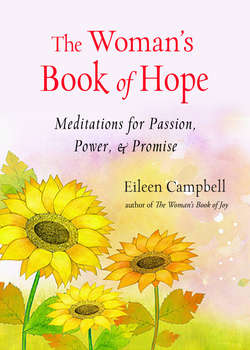Читать книгу The Woman's Book of Hope - Eileen Campbell - Страница 19
На сайте Литреса книга снята с продажи.
2. Reminding ourselves of the heroism of others
ОглавлениеOne of the things that can really help us when coming up against setbacks, and perhaps grappling with doubts about achieving our goals, is to look at how others have coped in difficult situations. What kept them going when times were tough? How did they manage to summon up hope even in the most dangerous of circumstances?
Amanda Berry was one of three girls kidnapped and held captive for over a decade in a house in Cleveland. Repeatedly raped, psychologically abused, and threatened with death if she tried to escape, Amanda kept a secret diary that she later drew on to write her book Hope (together with Gina Dejesus). In it, she writes of trying to wire her mind to “focus on the hopeful thoughts, push out the negative ones.” While in captivity, she gave birth to a daughter, whom she tried to raise as normally as possible given the horrendous conditions of her captivity. She also made a promise to herself that when she was free, she would “live, laugh, love,” and remember every moment as a gift. “I am a believer in the power of hope…,” she wrote.
The young women escaped in 2013, and in May 2014 they were invited to Washington by the National Center for Missing and Exploited Children, an organization that helped the families of the three girls when they were abducted. They received the Hope Award, which is given every year to someone who inspires hope for missing children.
Although she may never know why what happened to her did happen, there is no doubt that the decade in captivity changed Amanda. She wrote that she was stronger and more aware of the importance of kindness. Above all, because she knows that life can change in seconds, her appreciation of the little things in life has become paramount. Ten years in the life of a young girl is a long time to keep hope alive, but Amanda's story shows what is possible in a seemingly impossible situation. We have a choice, whatever our situation, to choose how we respond, as the Dalai Lama reminds us:
We can let the circumstances of our lives harden us so that we become increasingly resentful and afraid, or we can let them soften us, and make us kinder.
The women of the Standing Rock Sioux Reservation in North Dakota are heroines who have not given up on hope. Resisting the construction of an oil pipeline that desecrated sacred burial and prayer sites and that threatened the water supply of the surrounding Native American community, these women have never given up hope in spite of being sprayed with tear gas and rubber bullets. Prepared to risk their lives, they have vowed to continue the strug- gle, believing that their ultimate weapon is prayer, as expressed here in this Pueblo prayer:
Hold on to what is good,
Even if it's a handful of earth.
Hold on to what you believe,
Even if it's a tree that stands by itself.
Hold on to what you must do,
Even if it's a long way from here.
We can empathize with these courageous women who have held on to their ideals, and we can see that our own lives need not be overcome by sorrow and despair. Other women's stories of the challenges they faced and how they held on to hope are an inspiration to us all.
I know I always have a choice in how I respond to life.
I remind myself that every moment of life is a gift.
I stand firm in my belief in what is good.
